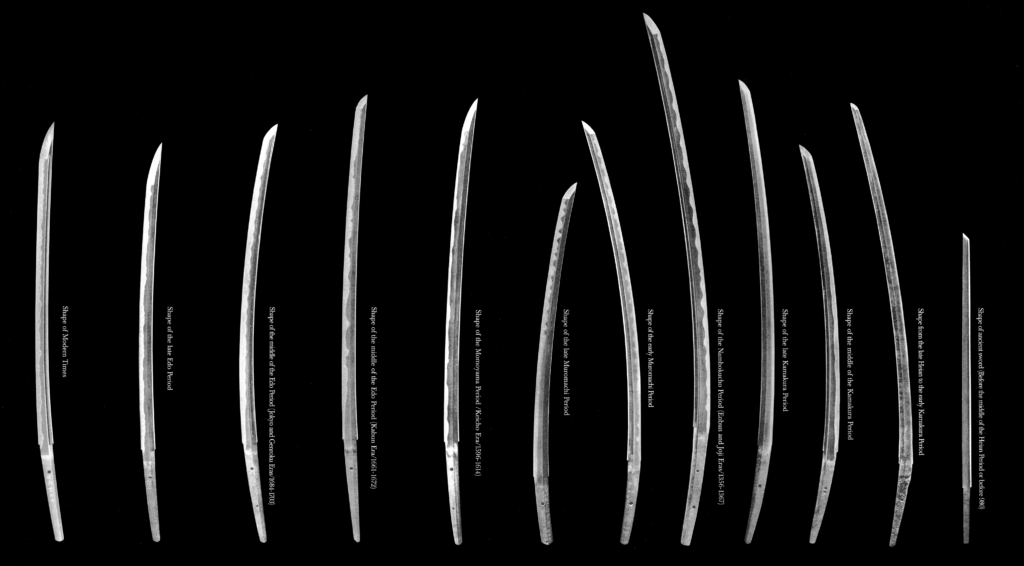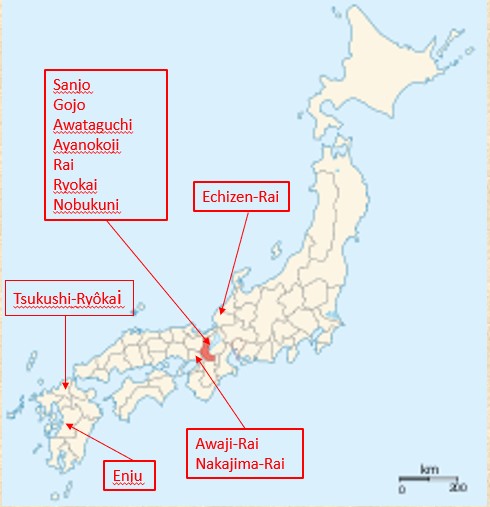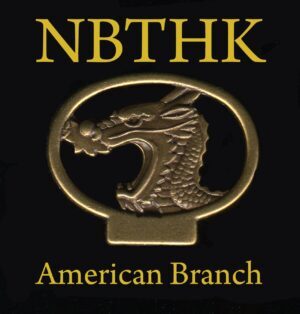Work In Progress (Proof of concept)
Eight Roads

The eight roads are important when discussing or doing kantei in Japan. Sword schools were designated along these roads. Some of the characteristics in swords were similar by different schools, as they may have shared techniques or even regional iron, as they were in similar proximity along these roads. In assessing a sword you may be instructed to look to a different road, which would indicate you are not in the proper school (Also meaning that you should not look to other schools on the same road)
Jidai (Era) / Sugata (Shape)

Sugata / Shape is important as it will indicate the most likely era from which the sword comes. The above chart shows (Ubu – Unshortened swords) Oldest on the right to newer items on the left. Shape is important inn assessing swords, as it gives you a good indication on how old a sword may be.
Keijo – Shape of sword
Tsukurikomi

Tsukuri-komi is a three-dimensional expression of the structure of a sword. There are various types such as Hira-zukuri (flat), Shinogi-zukuri (curved blade with Yokote and a ridge), Kiriha-zukuri (cutting edge), and Moroha-zukuri (double-edged).

Traditions
Gokaden:
Gokaden was a term designed to “group” most major sword making schools of the Koto era into structured catagories which aligned with characteristics and regions of sword making. This structure consolidated most of the sword making schools into 5 main traditions of sword making, with each having stylistic and characteristic similarities. (Keep in mind that much of this is over-simplification, which you will learn as you get deeper into your study)
Yamashiro:
Centered in the Yamashiro province in the early eras near Kyoto, these schools have more of a finesse to them (both in their shape and forging) which was favored by the ruling class.
Yamato:
Also centered near Kyoto but closer to many of the surrounding temples , they are much more rustic construction and tempering in general terms and were used by many of the monks during some of the early conflicts
Bizen
Seen by many as the best swords, this tradition has the longest line of highest quality swords and swordsmiths of any of the other traditions.

Soshu:
This tradition was seen as a major breakthrough in sword making as it combined some of the Yamashiro and Bizen techniques
Mino:
Other
Shinto
Shinshinto
Majiwarimono
Schools
Yamashiro Schools
A number of the Yamashiro Schools were named after roads or neighborhoods in Kyoto (Sanjo (三条), Gojo (五条), Ayanokoji (綾小路), Awataguchi (粟田口) which were around the Emperors Imperial Palace.

Yamato Schools
As mentioned in the Tradition section, the Yamato tradition was centered around temples. These schools took their names from some of the temples. The five major Yamato schools, the Senjuin (千手院), Tegai (手搔), Taima (当麻), Hosho (保昌), and Shikkake (尻懸)
Koto Bizen Schools


Bizen Schools very close proximity

Jigane
Hamon
Utsuri


